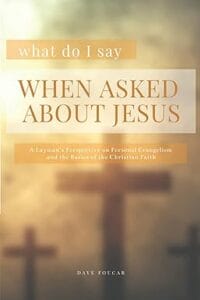You have probably experienced something like this: You’re standing in line at the grocery store. You’re in the “express” line and the sign clearly says “15 Items or Less.” There he is. That guy in front of you who has 16 items in his cart. You may be tapping your foot and crossing your arms impatiently at this point. “What is wrong with him?” you think to yourself. “Why can’t he follow the rules?”
Is this feeling just a result of your selfish desire to hurry? You have places to go after all! The nerve of that guy to slow you down! Or is it the result of something more? Is it a deeply innate understanding of fairness? A sense of right and wrong?
Even in this simple example, it doesn’t end there. Your first response is to become angry, isn’t it? The thought of smacking this guy upside the head might even cross your mind. But we know that would be wrong as well. Should I respond in any way that I feel at any time just because some jerk didn’t follow the rules? Of course not.
This idea of fairness, our sense of right and wrong, extends beyond these simple day-to-day interactions. The big things like murder, adultery, and stealing fall under this sense of right and wrong as well. We simply “know” they are wrong.
Or is it that our parents taught us to be good people? Taught by their parents, who were taught by their parents, and so on and so on. At some point, before our father’s father’s father’s father understood this, and that they should pass it on to their children, did we decide that murder was a bad thing because the implication was that someone might murder us? Or that stealing was only bad because someone might steal from you? In other words, self-preservation was the root of every sense of right and wrong. Really?
Paul the Apostle writes:
“Indeed, when Gentiles, who do not have the law, do by nature things required by the law, they are a law for themselves, even though they do not have the law. They show that the requirements of the law are written on their hearts, their consciences also bearing witness, and their thoughts sometimes accusing them and at other times even defending them” (Rom 2:14-15).
Paul indicates that it is not only “the law” that guides us, but also our conscience which accuses or defends us. This is common among all of us. Our conscience tells us from within how we should act. More than that, it reveals to us that we are created beings. It reveals to us the Creator Himself.
If there is this underlying sense of right or wrong, why do we have bad people? We see dictators who impose genocide, serial killers who brutally take the lives of the innocent, rapists, molesters, and a myriad of others who appear amoral. We look at them and say not just that they are law-breakers, but that they are sick. There is something wrong with them. They are not as they should be. They are broken!
Fortunately, or more appropriately, by God’s grace, these broken people are the exception rather than the rule. Because they are few, relatively speaking, they are also an argument for an underlying moral code, an innate sense of right and wrong. The stamp of the Creator. Without this sense of right and wrong, wouldn’t these broken people be more prevalent? People acting only in self-interest, no matter how depraved.
We often ask ourselves, “Why is there so much evil in our world?” Maybe, just maybe, the opposite is true. Perhaps the reality is that evil is constrained, at least to a large degree. Put in check not only by God Himself but by our own sense of right and wrong created in us by God.
This sense of right and wrong, if we open our eyes to it, can be considered a general revelation from God. He reveals Himself to all by providing this sense of right and wrong. It comes from somewhere and that “somewhere” is God. We will only see it if we eliminate the presuppositions that there is no God.
The psalmist speaks to this when he says “The fool says in his heart ‘there is no God’” (Psa 14:1). The word “fool” here does not so much indicate a lack of intelligence. Rather, it implies moral deficiency. Does this suggest that those who deny God for what they believe to be “intellectual” reasons are immoral or evil? No. At least not in every case. The question is perhaps more about honest searching. The dismissal of God is made in the “heart.” The center of decisions and emotions. The person in question simply decides there is no God because they don’t want a God. He is a “fool.”
So, next time you wait behind someone who is in the wrong line, or see someone doing something you just know is wrong, thank God. Thank Him for putting His stamp on you. For speaking to you through your conscience and writing His law on our hearts.
Written by David Foucar
This is an updated edition of a post originally published on Christian Grandfather Magazine
Featured Image by Adrian Dascal on Unsplash





















Comments are closed.